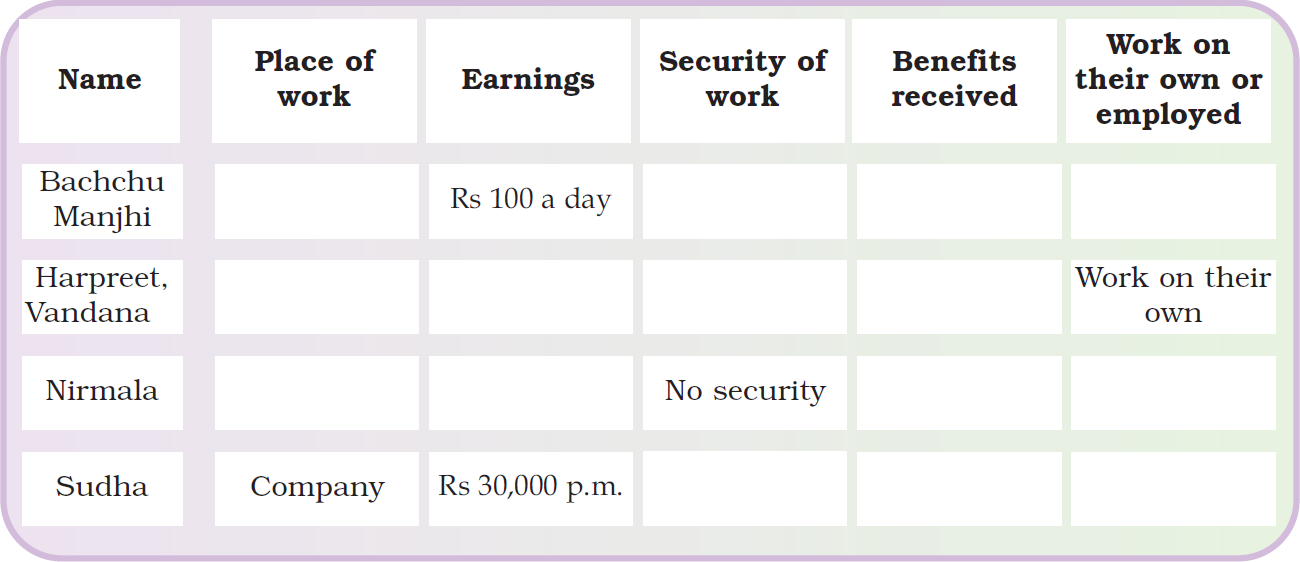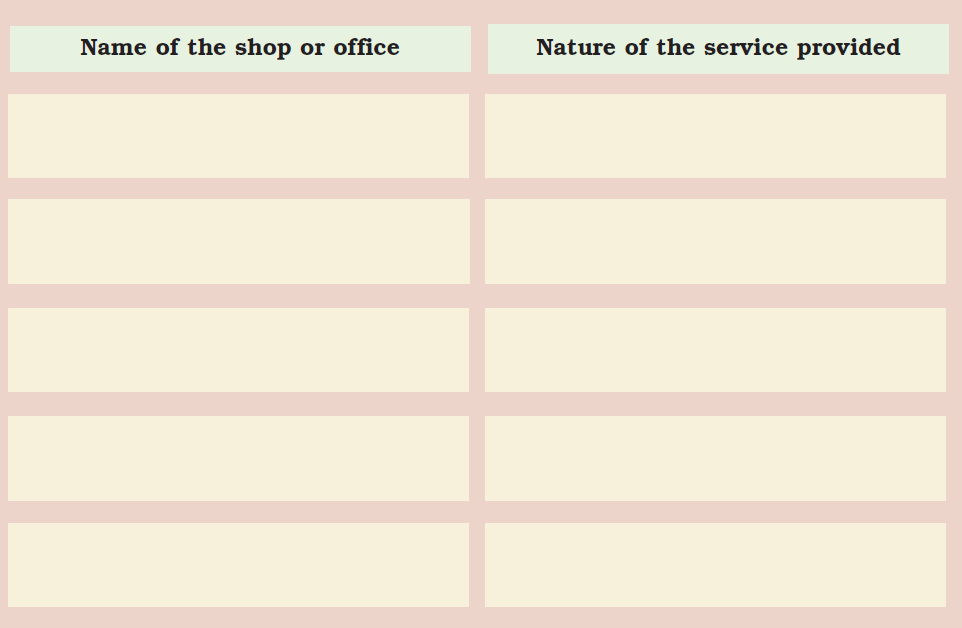Chapter 9 - Urban Livelihoods
Question 1: Read and discuss the following description of the living conditions of workers who come to the labour chowk.Most workers that we find at the labour chowk cannot afford permanent accommodation and so sleep on pavements near the chowk, or they pay Rs 6 a night for a bed at a nearby night shelter run by the Municipal Corporation. To compensate for the lack of security, local tea and cigarette shops function as banks, moneylenders and safety lockers, all rolled into one. Most workers leave their tools at these shops for the night for safekeeping, and pass on any extra money to them. The shopkeepers keep the money safely and also offer loans to labourers in need.
Source: Aman Sethi, Hindu On-line
Answer:
• Their living conditions are very poor - without any access to basic facilities like sanitation, drinking water.
• Due to lack of basic facilities, they will be prone to many diseases.
• As they live in poverty, they cannot access medical facilities.
• They have don’t have permanent jobs.
• They don’t have access to education and they will continue living in poverty.
Question 2: Complete the following table and discuss how their work is different:

|
Name |
Place of work |
Earnings |
Security of work |
Benefits received |
Work on their own or employed |
|
Bachchu Manjhi |
Road |
Rs 100 a day |
No security |
No benefits |
Work on his own |
|
Harpreet Vandana |
Showroom |
Flexible |
Their job is secured |
They are planning to buy a flat and car. |
Work on their own |
|
Nirmala |
Garment factory |
Rs. 80 a day |
No security |
She can earn extra money by working late. |
Employed |
|
Sudha |
Company office |
She gets regular salary. |
Her job is secured |
Holidays, medical facilities |
Employed |
Question 3: In what ways is a permanent and regular job different from a casual job? Discuss.
Answer:
• In a permanent and regular job an employee gets a regular salary every month.
• Besides, a regular salary he gets other benefits such as savings for old age, holidays, medical facilities for his family, etc. Thus, his job is secured.
• But casual workers avail no job security.
• If workers complain about their pay or working conditions, they are asked to leave.
• They are also expected to work very long hours.
• They don’t get other benefits like permanent employees.
Question 4: What benefits does Sudha get along with her salary?
Answer:
• She gets a regular salary every month and is a permanent worker with the company. She can expect her job to continue for a long period of time.
• Being a permanent worker she also gets other benefits such as the following:
• Savings for old age: A part of her salary is kept in a fund with the government. She will earn interest on these savings. When she retires from this job she will get this money and she can then live on that.
• Holidays: She gets off on Sundays and national holidays. She also gets some days as annual leave.
Question 5: Fill in the following table to show the services provided by people in the markets which you visit frequently.

|
Name of the shop or office |
Nature of the service provided |
|
Street Beatz |
Clothes for men, women and children |
|
Keshav Reddy |
Sweets, Cakes etc |
|
Ratnadeep |
Fruits, Vegetables and other groceries stores |
|
L V Prasad Eye Institute |
Eyesight checking, making spectacles etc |
|
State Bank of India |
Provides security and growth to money |
No comments:
Post a Comment